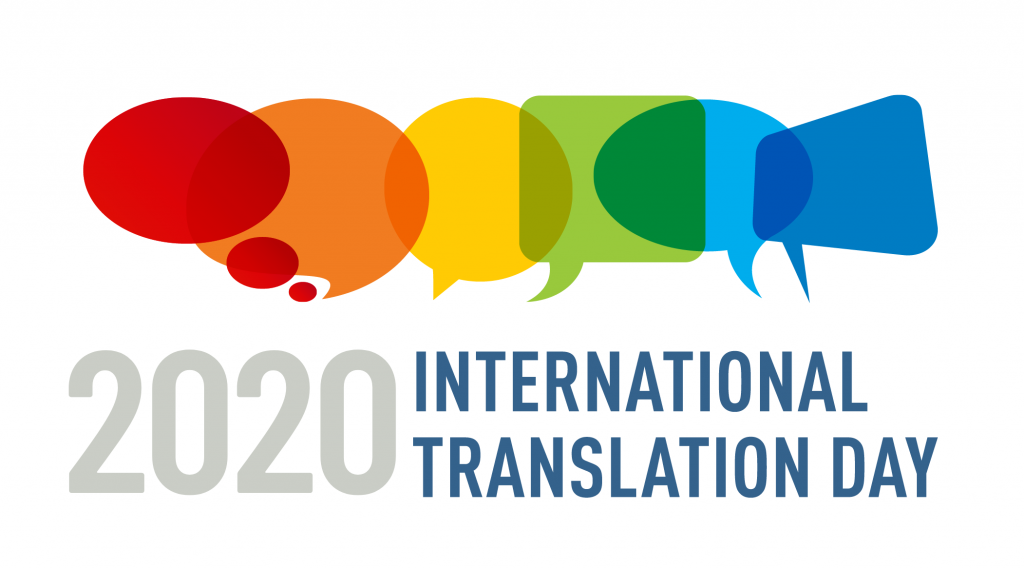
In 2017, the UN General Assembly adopted resolution 71/288 on the role of language professionals in connecting nations and fostering peace, understanding and development, and declared 30 September as International Translation Day.
This is an opportunity to pay tribute to the work of language professionals and their role in bringing nations together, facilitating dialogue, understanding and cooperation, contributing to development, and strengthening world peace and security.
30 September was chosen as it celebrates the feast of St. Jerome, who is considered the patron saint of translators. St. Jerome was a priest from Northeastern Italy, who is known mostly for his endeavor of translating most of the Bible into Latin from the Greek manuscripts of the New Testament. He also translated parts of the Hebrew Gospel into Greek. He was of Illyrian ancestry and his native tongue was the Illyrian dialect. He learned Latin in school and was fluent in Greek and Hebrew, which he picked up from his studies and travels. Jerome died near Bethlehem on 30 September 420.
Every year since 2005, the United Nations has invited all its staff, accredited permanent missions staff and students from select partner universities to compete in the UN St. Jerome Translation Contest, a contest which rewards the best translations in Arabic, Chinese, English, French, Russian, Spanish, and German.
Multilingualism, a core value of the United Nations
According to the UN, “languages, with their complex implications for identity, communication, social integration, education and development, are of strategic importance for people and the planet.
There is growing awareness that languages play a vital role in development, in ensuring cultural diversity and intercultural dialogue, but also in attaining quality education for all and strengthening cooperation, in building inclusive knowledge societies and preserving cultural heritage, and in mobilizing political will for applying the benefits of science and technology to sustainable development.
An essential factor in harmonious communication among peoples, multilingualism is also regarded by the United Nations General Assembly as a core value of the Organization. By promoting tolerance, multilingualism ensures effective and increased participation of all in the Organization’s work, as well as greater effectiveness, better performance and improved transparency.
Translation at the UN
The United Nations is one of the world’s largest employers of language professionals. Several hundred language staff work in UN offices in New York, Geneva, Vienna and Nairobi, or at the United Nations regional commissions in Addis Ababa, Bangkok, Beirut, Geneva and Santiago. Translators are one type of language professionals employed at the UN.
UN language specialists include:
- Editorial and desktop publishing assistants;
- Editors;
- Interpreters;
- Précis-writers;
- Production editors and desktop publishers;
- Translators;
- Verbatim reporters
United Nations translators handle all kinds of documents, from statements by Member States to reports prepared by expert bodies. The documents they translate cover every topic on the United Nations agenda, including human rights, peace and security, and development. New issues arise every day. UN documents are issued simultaneously in the six official languages of the Organization (Arabic, Chinese, English, French, Russian and Spanish). Some core documents are also translated into German. This multilingual documentation is made possible by United Nations translators, whose job is to render clearly and accurately the content of original texts into their main language.
If you are interested in working as a language specialist at the UN, check UN Careers on Competitive examinations for language professionals.
Translators Without Borders
To meet the unprecedented demands of the COVID-19 pandemic, Translators Without Borders (TWB) has launched the COVID-19 Community Translation Program. They are providing community organizations with free and open access to TWB’s online translation environment so they can connect and collaborate directly with TWB’s community of over 30,000 translators, many of whom are generously donating their time to help people access COVID-19 information in their language.
TWB has received an unprecedented number of requests from small, local organizations desperate to translate information for their non-English speaking community members. Examples include translating travel ban information for refugees and immigrants into Chinese and Korean; translating what social distancing means into Spanish; and translating infection prevention and control information into Spanish, Chinese, French and Portuguese.
Click here to find out more.







